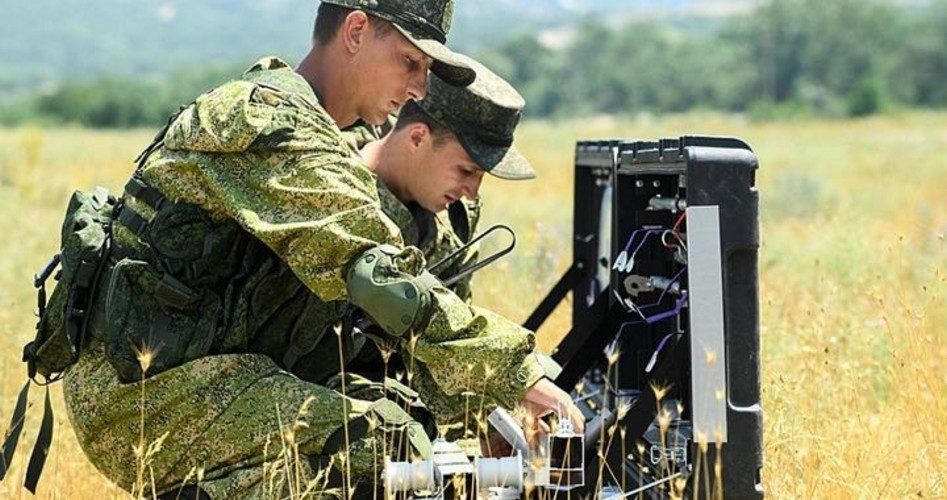
Just days after Russia/U.S. talks taking place in Rome collapsed on Wednesday, Russia clarified exactly where it stands in Venezuela by sending a Russian troop commander and 100 troops to Caracas.
U.S. Special Envoy to Venezuela Elliott Abrams said the talks ended on a positive note: “We did not come to a meeting of the minds, but the talks were positive in the sense that I think both sides emerged with a better understanding of the other’s views,” he stated.
On the other hand, Abrams’ Russian counterpart, Deputy Foreign Minister Sergei Ryabkov, ended the meeting with a warning: “We assume that Washington treats our priorities seriously, our approach and warnings.”
It didn’t help any that Venezuela’s interim president, Juan Guaido, who has been recognized by the United States, told Reuters on Friday that Maduro’s regime was failing: “They are isolated, alone, they are falling apart day by day. The citizens do not like them, they reject them, they hate them.” After listing the new sanctions the United States has placed on Maduro’s lifeline — sanctions against foreign banks supporting Maduro and against his gold mining company and its president — Guaido added: “What’s missing? That the leadership, the high command of the armed forces, [must] take the side of the constitution.”
Russia has substantial political and economic investments in Venezuela specifically and in South America in general that it is unwilling to give up without a fight. Some consider the arrival of fresh troops a provocation, while others consider it a bargaining chip for the next round of talks. It’s also a follow-on to the joint military exercises with Russian and Maduro’s military that took place in Venezuela in December.
The Russian troop commander, Chief of Staff of Russia’s Ground Forces Vasily Tonkoshkurov, arrived on Sunday with 100 Russian soldiers and 35 tons of military equipment. They were there, said the Associated Press, to “discuss strategy, equipment maintenance and training,” without further details.
It is one of many potential flashpoints that could ignite the conflict with serious military implications. Maduro owes some $18 billion due in April to his government’s lenders, with another $75 million due to Citgo, the most valuable asset Maduro has left. The Citgo board is already staffed with Guaido supporters, and a failure to meet that commitment would likely open the door for takeover of Citgo’s parent PdVSA.
Another potential flashpoint is the detention of 12 Americans by Maduro, some of whom have been held in filthy jails since November of 2017. The State Department issued a warning on Friday:
The United States is gravely concerned about the welfare and safety of all U.S. persons detained in Venezuela, and by reports of Venezuelan prison officials preventing attorneys and families of detained U.S. citizens from delivering goods and denying routine communication.
Six of them are former Citgo executives who have been in custody since November 2017 after being arrested for “being thieves and traitors against the fatherland,” said Maduro at the time.
Another flashpoint is the simmering rage of Maduro’s serfs suffering under nearly incomprehensible conditions. The Institute of International Finance, a Washington-based association of financial institutions, compares Venezuela’s economy decline to that of Zimbabwe’s implosion in the late 1990s. The decline is like something citizens would expect from extreme natural disasters or military confrontations, according to the IIF’s chief economist, Sergi Lanau.
Economic output has fallen by half in just the last three years, with another 30 percent contraction expected in 2019. Hyperinflation has turned the bolivar into tissue paper, resulting in the monthly salary for a schoolteacher, for example, only able to purchase a dozen eggs and about two pounds of cheese.
Oil output from Maduro’s state-owned oil company, PdVSA, continues to plummet thanks to incompetence of the company’s workers, lack of maintenance, and Washington’s sanctions. A recent blackout was blamed on poor maintenance at a critical power station serving 80 percent of the country. More than 10 percent of the country’s population has left, leaving those behind in poverty and starvation. Even though many of those ex pats are sending money back to help their families still living there, almost nine out of 10 of them don’t have enough money to cover their basic nutritional needs.
The combination of sanctions, economic privation, diminished revenues, and resulting governmental insolvency is putting existential pressure on Maduro. The statement implied by the arrival of fresh Russian troops and their commander on Sunday is clear: We’re here to support the Maduro regime. We’re not going anywhere anytime soon.
Photo of Russian soldiers: Mil.ru
An Ivy League graduate and former investment advisor, Bob is a regular contributor to The New American primarily on economics and politics. He can be reached at [email protected].
Related article:



